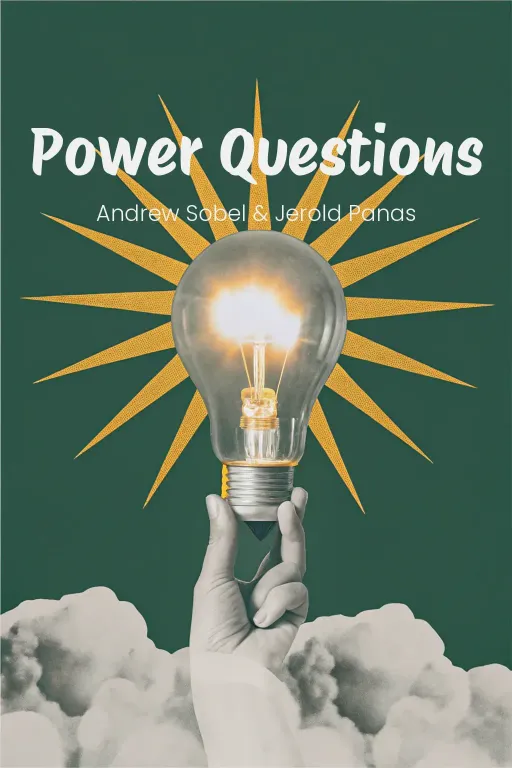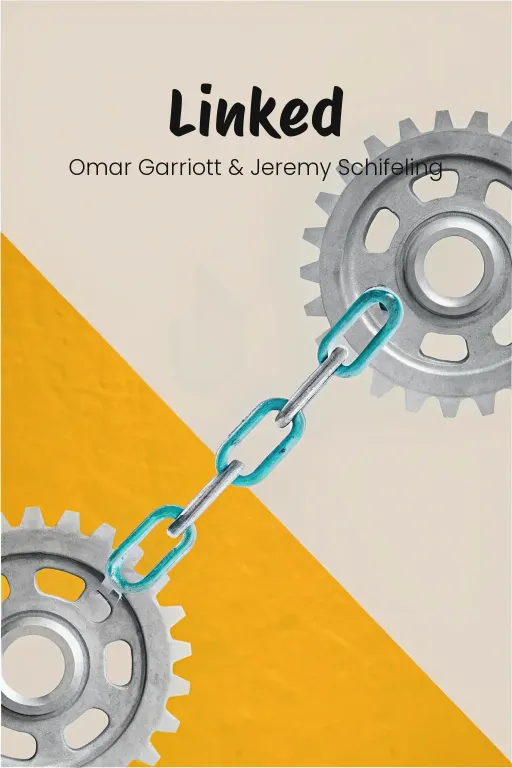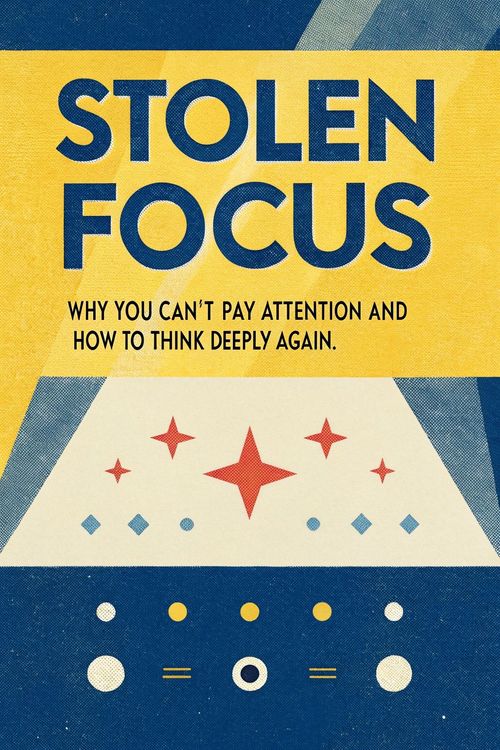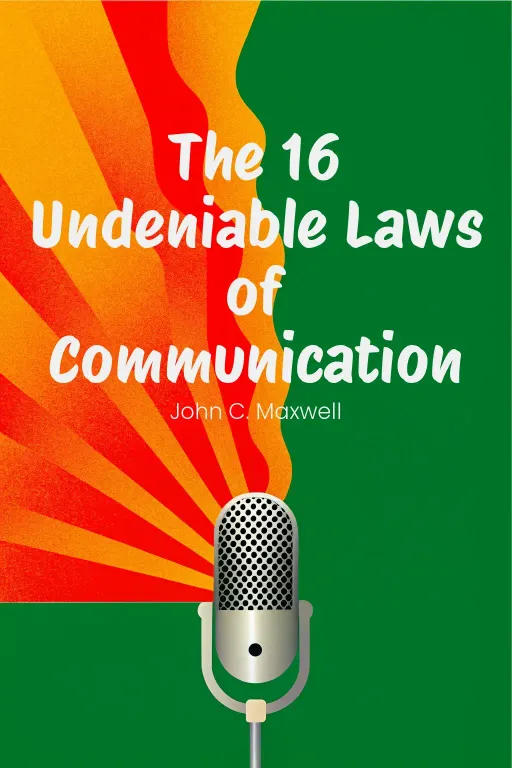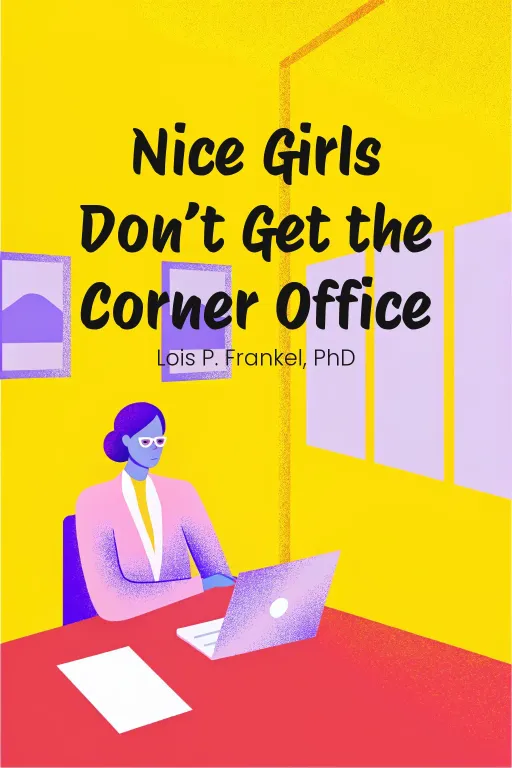
Unlock Deeper Talks: Ask This, Not That
Podcast by Let's Talk Money with Sophia and Daniel
Build Relationships, Win New Business, and Influence Others
Unlock Deeper Talks: Ask This, Not That
Part 1
Daniel: Hey everyone, welcome back to the show! Let's jump right in with a question: Ever had one of those conversations that just flipped a switch in your head about someone, or even yourself? Sophia: Or, you know, ever walked away from a chat thinking, "Wow, that was more insightful than I expected," all because someone asked a really spot-on question? Daniel: Precisely! So today, we're diving into "Power Questions" by Andrew Sobel and Jerry Panas. It’s all about how well-placed questions can totally reshape relationships, kickstart self-discovery, and even smooth out conflicts. Sophia: It's not just generic advice, though, right? The book gets into the nitty-gritty – stories of CEOs, mentors, everyday folks who triggered major breakthroughs with the right question. Daniel: Exactly! We're going to unpack it into three big ideas. First up, how really meaningful questions can take our connections with people deeper. Then, how they help us uncover motivations – both yours and theirs. And finally, how they can transform conflicts into collaboration opportunities. Sophia: Think of these questions like keys. Some unlock instant trust, others help someone map out their aspirations, and a few might just break down walls in a tense situation. Daniel: Whether it's something heartfelt, like "What's been the happiest day of your life?" or something a bit challenging like, "Is this really the best you can do?"—we’ll explore how the right questions can really create those “aha” moments. Sophia: Okay, sounds like we’re about to get a serious upgrade to our conversation game. Ready to dive in?
The Power of Meaningful Questions
Part 2
Daniel: Okay, so let's jump right in: meaningful questions and how they can “really” strengthen our connections with people. Honestly, it’s amazing how the right question—at the right time—can just cut through all the small talk and create this space for genuine connection. Sophia: Right, but this idea that just one question can transform interactions… isn’t that a bit much? Like, sure, they can help, but isn’t a deep relationship built more on long-term effort and trust? It's not “really” a one time thing is it? Daniel: That's a good point, Sophia. Relationships definitely grow over time, it's true. But sometimes, a thoughtful question is like a catalyst, right? It speeds things along. Remember the bankers’ meeting in Manhattan that was talked about in the book? All metrics, operational goals, just standard corporate speak. Sophia: Oh yeah, the kind of meeting where you secretly hope the coffee has a double shot of caffeine, because the conversation is definitely lacking it. Daniel: Exactly! Then the authors jumped in with a simple question: "Why do you do what you do?" And that completely changed the dynamic. Sophia: That’s where the vivid responses came out, right? One banker felt like he was on the deck of an aircraft carrier, looking for opportunities to help his clients. Daniel: Yes! And another said he simply loved making an impact. Suddenly, it wasn't just about profits or numbers; it was about purpose, about passion. The question just peeled away all that corporate armor and showed who they really were. Sophia: Okay, but stepping back a bit, was the timing as important as the question itself? I mean, imagine someone walking into that meeting and blurting out, "Why do you do what you do?" before even saying hello. That could have gone badly. Daniel: Absolutely! Timing is key. If the question feels out of place, it could come across as insincere, or even invasive. It’s not just in the words, but knowing when and how to ask them. Sophia: So, power questions only work when you've got some emotional intelligence. Got it. Let's talk about how to actually create these so-called magic questions. The book mentioned open-endedness, intentionality, and active listening. Daniel: Yes, they did. Let's break those down. Open-ended questions are about inviting stories, not just answers. So instead of asking, "Did you enjoy your career path?" you might ask, "What inspired you to pursue it in the first place?” It's amazing how much more people will share when you give them the space to elaborate. Sophia: So, no yes-or-no questions, then. Otherwise, it's like throwing a tennis ball straight into the ground, and the other person has no chance to hit it. Daniel: Perfect metaphor! And intentionality is about steering the conversation towards deeper themes, like motivation or fulfillment. It’s asking "What drives your passion for this work?" instead of just "What's your job?" Sophia: Okay, but what if someone doesn't want to go deep? What if you ask a heavy-hitting question and they shut down or just give you a non-answer? Daniel: That’s where active listening comes in. If they’re hesitant, you kind of meet them where they are. Reflect on something they’ve already said to build trust, or just let the question hang there, allow for a pause. Sometimes, silence creates the space they need to open up. Sophia: Silent, but not awkward. I see what you mean. Okay, let’s test this again with the example of Alan Hassenfeld and the question "What in your life has given you the greatest fulfillment?" Daniel: Oh, that was such a powerful moment! Instead of talking about Hasbro's milestones or products, he talked about his work with Hasbro Children’s Hospital. Visiting kids during the holidays. How a moment of joy was more impactful than anything he'd done professionally. Sophia: That's about as authentic as it gets! But are these questions universally applicable? Not everyone runs a children’s hospital, you know? How do you make these questions work for everyday people? Daniel: That’s where the beauty lies, they adapt. Not everyone has a grand story like that, but everyone has experiences and values that matter to them. Instead of "the greatest fulfillment," you can scale it down. Like, "What's something you've done recently that made you proud?" It's simpler, but it still encourages personal reflection. Sophia: I guess that flexibility keeps the questions from sounding too scripted. But let’s shift from the emotional to the strategic - using these questions to solve problems, even de-escalate conflicts. Daniel: That’s where timing and structure are key. The authors show how a well-phrased question, at the right moment, can redirect tension or find common ground. But we’ll cover the conflict piece later, once we’ve unpacked how transformative these questions can be in general conversations. Sophia: All right, so we know meaningful questions foster connection, uncover purpose, and reveal hidden motivations. It sounds like these aren’t just your average conversation starters, they’re actual conversational superpowers. Alright, let's see what else is in store.
Building Relationships Through Inquiry
Part 3
Daniel: So, from appreciating the power of questions to seeing how they work in real life, let’s dive into today's main topic: building relationships through asking the right questions. It’s one thing to get why questions matter, but what makes them so crucial for creating real connections? Sophia: I figure it’s because questions are strangely good at prying open those tightly sealed doors to our personal stories. But there's a structure to this, right? Something about how questions can unlock those stories, help iron out conflicts, and get people moving towards action. Sounds like a handy framework for mastering conversations. Daniel: Absolutely – it’s a step-by-step thing. We start with how questions draw out personal stories – you know, those moments when someone feels truly heard. Then, we look at how they bridge differences or smooth over disagreements, which is key for resolving conflicts. And finally, we’ll explore how they can really energize and inspire action. Sophia: Okay, but let's start by talking about unlocking those personal stories. The idea here is that there are these certain ‘gateway’ questions, like, "How did you get your start?" or "What are your dreams?" that kind of disarm people, conversationally speaking. Does that make sense? Daniel: Perfectly. And “How did you get started?” is the perfect example. It seems simple, but it nudges someone to think back to that first journey – where things began, what got them going, and maybe some of the bumps along the road. Do you remember the story about Rich DeVos in the book? Sophia: Oh, yeah, the Amway co-founder. What really struck me was how fast the question changed the whole vibe of the conversation. One minute, you’re at some formal luncheon with all the usual polite chitchat, and the next, DeVos is lost in the story of how Amway came to be. Daniel: Exactly. And he didn’t fill his answer with business jargon. He talked about their humble beginnings, how Amway grew out of wanting to help people succeed through their own hard work. It wasn’t just a business; it was personal. Sophia: So you get this huge payoff in terms of narrative, just from asking one open question. But let's dig into why that question works so well. It’s not just about feeling nostalgic, right? Daniel: Not at all. When you ask someone, "How did you get started?”, you’re pointing them towards something fundamental – their core reason or “why.” It's personal. It touches on their pride, their hard work, and those initial moments of inspiration. Plus, it opens the door for storytelling, which is always compelling. Sophia: Right. Okay, time for my skeptical hat. Is there some secret formula for when to use this question? Like, it clicked with DeVos, but imagine hitting someone with that on a first date: “So, how did you get started?” That date’s probably over. Daniel: Good point, yeah, context is everything. Timing, setting, even your tone – super important. In DeVos’s situation, it was a business-focused event where sharing personal stories made sense. So, the moral of the story? Read the room. Ask yourself if your question adds value or just feels…off. Sophia: Got it. So, timing is key. Let’s switch over to another great question from the book – “What are your dreams?” It’s pretty bold, almost a little too raw to ask someone that. Doesn't that make it kinda…risky? Daniel: It can be, but it’s really powerful when done right. Think about Ben Sampson and his wife Liz from the book. After years of focusing on his own career, Ben finally realized he hadn’t paid attention to Liz's dreams in a while. Sophia: Oh, yeah, that moment when he asked, “What are your dreams?” And wow, it was like opening the floodgates. She started sharing dreams she'd put aside years ago – dreams she’d sacrificed to raise their family. Daniel: Exactly! That question didn’t just hit hard for Liz – it changed Ben's perspective, too. It shifted the whole dynamic of their relationship. Once those dreams were out in the open, Ben made an effort to support her. Sophia: Alright, but let's be real; not every relationship has some deeply buried emotional surprises waiting to explode. So how do you tweak that question to fit, say, a casual friend or someone at work? Daniel: You tone it down. Instead of asking about big "dreams," you could say something like, “What’s a project or goal that really excites you right now?” The idea is to show you’re interested without overwhelming them. Sophia: Makes sense. I like that it changes based on how much trust you have with someone. Now, let's zoom out a bit. Why do you think these specific questions stand out so much? Daniel: It’s because they hit emotional buttons – they get at values, hopes, accomplishments, and sometimes even regrets. People don’t hear these questions every day, which is why they can be so disarming. They make you think, but they also show that you care enough to ask. Sophia: And by disarming, you mean creating a bit of vulnerability, right? Because let's face it, we’re usually stuck in this loop of small talk. Breaking out of that with a real question is refreshing. Daniel: Absolutely. The book nails it – whether it’s Rich DeVos talking about his entrepreneurial journey or Liz rediscovering her own dreams, these questions bring out stories that people often don’t realize they want to tell. Sophia: So, the takeaway is: meaningful questions build bridges. Whether it’s moving from small talk to something deep or turning a misunderstanding into understanding, they create paths that weren’t there before. Daniel: Exactly right. And with these examples, we’ve seen how questions can unlock stories and dreams – but there’s more to it. These same ideas aren’t just about connecting. They can also help navigate conflicts and ignite action. Should we dig into that next?
Navigating Challenges with Strategic Questions
Part 4
Daniel: So, from building stronger relationships to handling tough situations with understanding, let's dive into how questions can be more than just simple conversation starters. They can be powerful tools for navigating difficult discussions, calming tense situations, and even turning conflicts into opportunities. Well-thought-out questions aren't just about getting answers; they're about creating clarity, building trust, and finding solutions when things get tough. Sophia: Exactly, and we're not just talking about those harmless "What do you what for dinner?" types of questions, right? We're talking about serious stuff – like dealing with betrayals, professional setbacks, even moments of real crisis. But, how do you even begin to have those kinds of conversations without making things even worse? Daniel: Well, that's where the beauty of the book comes in. It points out that when emotions are running high, our first reaction is often to either attack or defend. Strategic questions change that by encouraging reflection and, you know, collaboration instead. They basically help you look at the problem in a new light. Sophia: Reframing, huh? That's straight out of a therapist's playbook, isn't it? "And how does that make you feel?" But seriously, can you give us a concrete example of how this reframing thing works with strategic questions? Something we can really sink our teeth into? Daniel: Okay, let's take the story of John Kirkman, who owned a manufacturing company. He found out that his best friend and CFO, Bob, had been stealing money. Think about it – a betrayal like that could easily have led to a massive argument and broken friendships. But John's approach changed everything. Sophia: Right, the moment of truth, the "Did you steal the money? Yes or no?" question. It's almost too simple, isn't it? There's no room for dodging or making excuses. Daniel: Exactly. The genius of it is that it cuts right through all the noise. It forces a clear, direct answer. And Bob, faced with that question, confessed. Now, most people might have stopped there, but John didn't. Sophia: And then he hits him with the empathy bomb. "If the shoe was on the other foot, how would you want to be treated?" Takes serious guts, because most of us would probably just be screaming, "How could you do this?!" Daniel: True. What's amazing is how that question changed the whole situation. Instead of making things even more heated, it made Bob think about things from a more understanding perspective. And it wasn't just about empathy – it also made John think about his own actions. It turned what could have been a permanent split into a chance to forgive and rebuild trust. Sophia: Forgiveness in the middle of an embezzlement scandal? That's not exactly your typical reaction. But here's what I'm noticing: it wasn't just one magic question. It was a series of steps – a clear, thought-out plan. First, you confront the issue directly to get honesty, then you switch to empathy to start rebuilding the relationship. Daniel: Exactly! That sequence makes sure the emotional temperature is managed while still facing the reality of the conflict. And while John's story is a great example of handling betrayal, you can use the same structure – clarity followed by empathy – in everyday disagreements too. Sophia: Okay, but what if you're dealing with just normal workplace stuff? Someone messes up a project, feelings get hurt, and the blame game starts. How do you calm things down without it turning into a drama? Daniel: That's where the book's practical tools come in handy. Take the "Five Whys" method, for example. It's a simple but really effective way to dig deeper than the surface of a problem and find out what's really causing it. Sophia: Oh, the "Why" game. That sounds like trying to understand a toddler. "Why? But why? And why again?" Daniel: Laugh all you want, it works! Imagine this: a deadline is missed, and it creates chaos. Instead of just assigning blame, you ask, "Why didn't the project get delivered on time?" Maybe the answer is that someone didn't get the feedback they needed from the client. So, you ask "why" again, and it turns out another department delayed its review. Keep asking, and you might discover that the real problem is poor communication between teams. Sophia: Okay, I see your point. The "Five Whys" changes the conversation from blaming people to solving problems. It's not about making someone feel bad; it's about understanding why things went wrong. Daniel: Exactly. And it's not just about the logistics of the problem – it also creates accountability. It shows that you're genuinely interested in fixing the system, not just pointing fingers. Sophia: Hold on a second. I have to challenge this – what if someone gets defensive during this? How do you keep them from seeing the "Whys" as some kind of interrogation? Daniel: That's where your tone and your intentions really matter. The book emphasizes that even though the questions are structured, you need to ask them with real curiosity, not like you're accusing someone. For example, you could start by saying something like, "I really want to understand what happened so we can figure out how to fix this together." Sophia: So, you're basically a detective, but a friendly one. Like Columbo, but with a softer touch. Daniel: If that helps you understand the idea, sure! But the point is, strategic questions like these can turn potential arguments into opportunities for discussion and finding solutions. Sophia: And that shift – from conflict to collaboration – is where these questions really prove their value. Now, shifting gears a little, let's talk about how questions don't just smooth over problems but also inspire action, especially in those high-pressure work environments. Daniel: Absolutely. Let's think about Steve Jobs and his famous question: "Is this the best you can do?" As simple as it sounds, the way he used it turned a small technical issue into a major innovation. Sophia: And a productivity nightmare for his team, no doubt. But seriously, Jobs wasn't just asking for better performance, was he? That question had a deeper meaning. Daniel: Exactly. Jobs connected the technical side with the desire to achieve something great. Take that time when he pushed his engineers to speed up the computer's boot time during the development of the Macintosh. By framing it as giving people back time, he turned a simple improvement into a challenge with a purpose. Sophia: Which is a great example of how questions can connect people to a larger picture. It's not just "fix this," it's "fix this because it matters." Daniel: Yes. That added layer of meaning is what makes questions like "Is this the best you can do?" so powerful. It doesn't just push for results – it inspires pride and a sense of ownership in the process. Sophia: Though I bet not everyone reacts the same way. Some people might hear that question and just feel overwhelmed. What prevents it from being seen as criticism instead of motivation? Daniel: Again, it's all about the delivery. Jobs paired his high expectations with a clear belief in his team's ability to meet them. He wasn't trying to put down their efforts – he was pushing them to reach their full potential. It's the difference between a question that discourages and one that empowers. Sophia: So, the lesson here is to use these high-impact questions carefully and in situations where there's mutual respect. Otherwise, it's just pressure without any purpose. Daniel: Exactly. And with these examples – from resolving conflicts to sparking innovation – it's clear that strategic questions aren't just tools for conversation. They're transformative in how they build trust, inspire engagement, and set the stage for growth.
Conclusion
Part 5
Daniel: So, to recap, we've really explored how impactful meaningful questions can be. From moving beyond superficial small talk to really understanding someone's motivations, building empathy when things get tough, and even sparking new ideas, a well-placed question can totally transform a conversation, can't it? Sophia: Absolutely. And it's not just about the question itself, is it? It's about how you ask it – the timing, your tone, what you're hoping to achieve. I mean, whether you're casually asking, "How did you get your start?" or boldly asking, "Is this really the best we can do?" questions can really unlock trust, teamwork, and even a sense of purpose. Daniel: Exactly! The big takeaway is that every question is a chance. A chance to connect with someone, get clarity on what’s going on and maybe even make a real change. So, here's a thought: What's one question you could ask someone today that might lead to a really interesting conversation, or uncover a story you've never heard? Sophia: That's a great challenge, Daniel. Because if we start asking better questions, we don't just get better answers. We actually open ourselves up to completely new ways of seeing things. Questions aren't just tools; they're like, well, like bridges, right? Daniel: Precisely, Sophia! And on that note, let's leave our listeners with something to consider. Next time you're chatting with someone, think about not just what you're saying, but really think about what you're asking. That one right question could be a game-changer.

